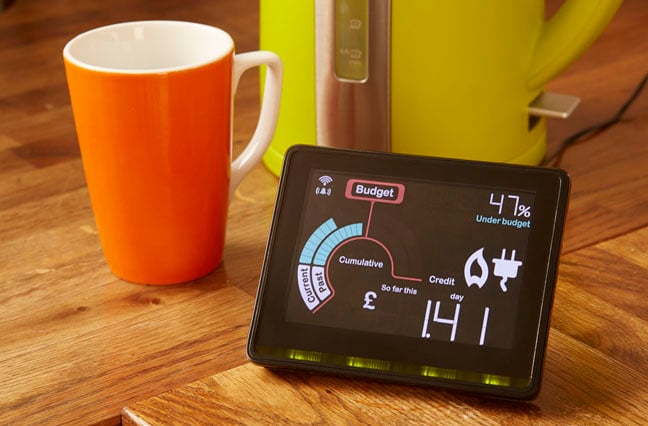Millions Of Smart Meters Will Brick It When 2G And 3G Turns Off

A gaggle of MPs are calling for government to put together a timetable for the replacement of millions upon millions of smart meters that will be defunct when 2G and 3G mobile networks are switched off.
The Public Accounts Committee (PAC) comprised of cross-party MPs penned a report to update the rollout of the smart meters, with multiple deadlines missed along the way of the £13.9 billion project (c $17 billion).
The report echoes an earlier one by the National Audit Office (NAO), which found that as of March 2023, energy companies had rolled out the devices to just 57 percent (roughly 32.4 million out of a potential install base of 57.1 million) homes and businesses. Of these devices, around 9 percent were not functioning properly.
The PAC says in its latest report: "A fifth more (an estimated seven million) will lose functionality when the 2G and 3G mobile communications networks are closed if they do not receive costly hardware upgrades (the cost of which will ultimately be borne by the billpayers)."
UK comms regulator Ofcom announced last month that UK mobile operators do not intend to provide 2G and 3G mobile networks past 2033. "The switch-off will affect customers using older mobile devices and services."
The PAC wants to know what the Department for Energy Security and Net Zero (DESNZ), as well as energy regulator Ofgem, are doing to plan the smooth running of a replacement scheme.
- UK smart meter rollout years late and less than two thirds complete
- Brit MPs pour cold water on hydrogen as mass replacement for fossil fuels
- Delayed, over-budget smart meters will be helpful – when Blighty enters 'Star Trek phase'
- Sod 3G, that can go, but don't rush to turn off 2G, UK still needs it – report
It asks both to set out "what they will do to ensure suppliers assign more importance than at present to replacing those smart meters not functioning properly" and "a timetable for replacing the communication hub element of smart meters that will lose functionality when the 2G and 3G mobile networks are switched off."
It is hardly surprising the PAC, which studies public audits such as those written by the NAO, is concerned about deadlines because the smart meter project has missed plenty so far.
The scheme started in 2012 when government placed the legal burden on energy suppliers to ensure they'd complete the smart meter rollout by 2019. The deadline was then pushed back: first to the end of 2020, then to 2024. A consultation was launched in February, under which the intent is to install the devices in 80 percent of homes and 73 percent of small businesses by the end of that 2025.
The project was estimated to cost £13.5 billion ($16.4 billion) between 2013 and 2034, based on 2011 prices. The benefits in terms of cost savings to households from knowing the amount of energy they are consuming was pegged at £19.5 billion ($23.6 billion).
The PAC also want DESNZ and Ofgem to outline "measures to ensure that suppliers use future-proofed technology – for example, by excluding 2G or 3G connectivity – in all new smart meter installations." And it wants the department and the energy watchdog to detail program costs to Parliament on an annual basis to inform decisions about the rollout. ®
From Chip War To Cloud War: The Next Frontier In Global Tech Competition
The global chip war, characterized by intense competition among nations and corporations for supremacy in semiconductor ... Read more
The High Stakes Of Tech Regulation: Security Risks And Market Dynamics
The influence of tech giants in the global economy continues to grow, raising crucial questions about how to balance sec... Read more
The Tyranny Of Instagram Interiors: Why It's Time To Break Free From Algorithm-Driven Aesthetics
Instagram has become a dominant force in shaping interior design trends, offering a seemingly endless stream of inspirat... Read more
The Data Crunch In AI: Strategies For Sustainability
Exploring solutions to the imminent exhaustion of internet data for AI training.As the artificial intelligence (AI) indu... Read more
Google Abandons Four-Year Effort To Remove Cookies From Chrome Browser
After four years of dedicated effort, Google has decided to abandon its plan to remove third-party cookies from its Chro... Read more
LinkedIn Embraces AI And Gamification To Drive User Engagement And Revenue
In an effort to tackle slowing revenue growth and enhance user engagement, LinkedIn is turning to artificial intelligenc... Read more

